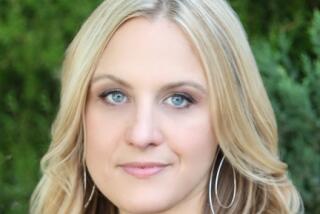Let’s Talk: Some Christians Ignore Interfaith Dialogue
Non-Christians might be confused by the mixed signals coming from different sectors of the Christian world about the value of interfaith dialogue and cooperation. President Bush’s comment during his recent visit to England that Christians and Muslims worship the same God irked many evangelicals who thought the president should leave theological matters to them.
However, officials at Fuller Theological Seminary in Pasadena, perhaps the largest evangelical seminary in the world, have begun a federally funded project of outreach to Muslims that includes affirming a belief in the same God.
And evangelist Franklin Graham, the son of Billy Graham, recently returned from a friendly visit with Sudan’s Muslim president, Omar Hassan Ahmed Bashir. During the visit, Bashir said he wanted to convert Graham to Islam, and Graham said he’d try to return the favor.
By contrast, the Italian Jesuit magazine Civilta Cattolica, which tends to reflect Vatican thinking, recently commented that Islam has constantly “shown a warrior and conquering face” continually threatening Europe.
Though Roman Catholic clergy and theologians (and liberal Protestant leaders) have consistently participated in interfaith work since the Second Vatican Council of the 1960s -- especially with the Jewish community -- the same is not true of most evangelical Christians. They have in most cases ignored interfaith councils throughout the nation. Thanks to the National Conference for Community and Justice, these councils are widespread in Orange County.
One conservative Christian leader who opted to join the Interfaith Council of Garden Grove, Westminster and Stanton is Missouri Synod pastor Doug Johnstone, advisor and assistant to his district’s bishop. Johnstone contends that religious leaders concerned with peace and justice need to know and work with their fellow spiritual leaders -- regardless of their faith.
Johnstone also does interfaith work to evangelize -- what he calls “a certain level of persuasion to your viewpoint.” Yet it’s impossible to do so without conversing with those of other faiths to understand what they really stand for.
Because of his interfaith work, Johnstone appreciates the variety of viewpoints that exist within a particular religion. The interfaith perspective balances the shrillness of the fanatics who tend to drown out more moderate voices.
Consider the rabbi of an Orthodox congregation in Orange County -- who wants to remain anonymous. He belongs to a Jewish-Catholic dialogue group, an activity studiously avoided by leaders of traditional Judaism. This rabbi points to the tremendous change in Catholic theology vis-a-vis Judaism since the Vatican council in 1964, particularly the exoneration of Jews of corporate responsibility in the death of Jesus and the encouragement of interfaith dialogue.
This rabbi believes humanity is on the cusp of an era of peace and cooperation and views himself “as helping to bring that period about.”
One way to do that, the rabbi believes, is to help non-Jews form more positive attitudes toward his faith. He adds that “the world is a shrinking place and it’s important that people with similar values work together.”
My attempts to speak with evangelical Christians who choose not to participate in interfaith gatherings proved frustrating. One prominent church leader did not return several phone calls and ignored a personal note requesting an interview. No clergy person at Liberty Baptist Church in Newport Beach was willing to talk.
A global religion poll conducted last spring by Zogby International (www.zogby.com) confirms to some extent the position of the evangelicals I tried to contact. It suggests that “born again” Christians in the U.S. are much more likely than “mainstream” Protestants or Catholics to agree with the statement “My religion offers the one true path to God and success in the next life” (41% versus about 16%).
Evangelical or born-again Christians might do well to distinguish functional religious pluralism -- the kind practiced by Johnstone and the Orthodox rabbi -- from its theological counterpart.
It is one thing for those of different faiths to strive together to help people attain the shared values of our democracy, and quite another to agree that all religions are valid paths to fulfillment. Interfaith work demands the former, not the latter.
More to Read
Sign up for Essential California
The most important California stories and recommendations in your inbox every morning.
You may occasionally receive promotional content from the Los Angeles Times.










